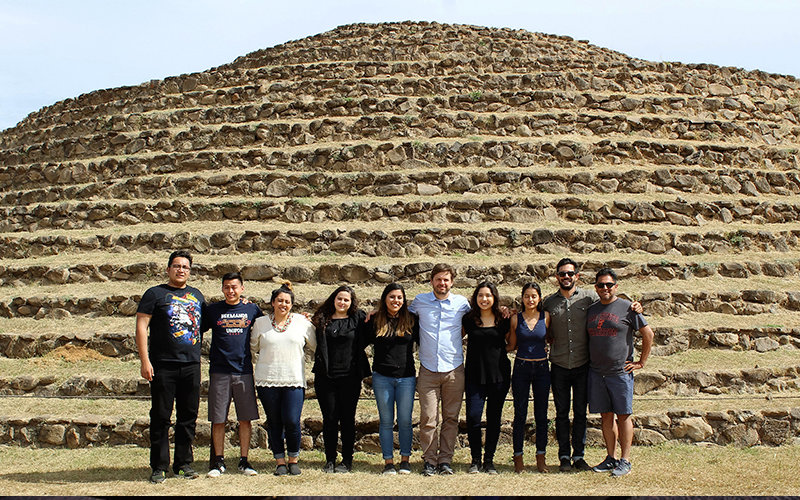
To further his research on immigrant students, Julián Jefferies, assistant professor of literacy and reading education, has been selected as a Fulbright Scholar. Jefferies will conduct research in Guadalajara, Mexico, focusing on the experiences of adolescent migrants who have returned to Mexico, their reintegration into school, and teacher perceptions of these students.
“I hope to learn more about what these adolescents are experiencing in schools and how they’re adapting to a new life in Mexico,” said Jefferies. “It has been a lifelong goal to be able to collaborate with researchers from Mexico on this topic.”
Jefferies will spend six months collaborating with scholars at the Universidad de Guadalajara, beginning in January 2018. His research also will seek to better understand the consequences of immigration policies in the U.S. and implications for public policy regarding how teacher education can better serve these students in Mexico and the U.S. He also will create curricula, lesson plans and resources that high school teachers in Mexico can use in order to better serve these students.
While in Mexico, Jefferies also plans to strengthen relationships with Universidad de Guadalajara for CSUF’s Guadalajara Transnational Migration Program, which he directs. This study abroad program at the Mexican university offers CSUF students the opportunity to engage in service-learning related to Latino/a immigration issues to the U.S.
Jefferies arrived in the United States as an undocumented student from Argentina, became a permanent resident in 2010, and three years later, a U.S. citizen. His work as a Fulbright Scholar is relevant to the immigration issues at the forefront of today’s national discussions.
“This is an important time for a scientific study of immigration,” said Jefferies, who earned his doctorate in education from Boston College. “We need a more humane and rational description of why immigrants move and how U.S. policy affects their labor and human rights.”